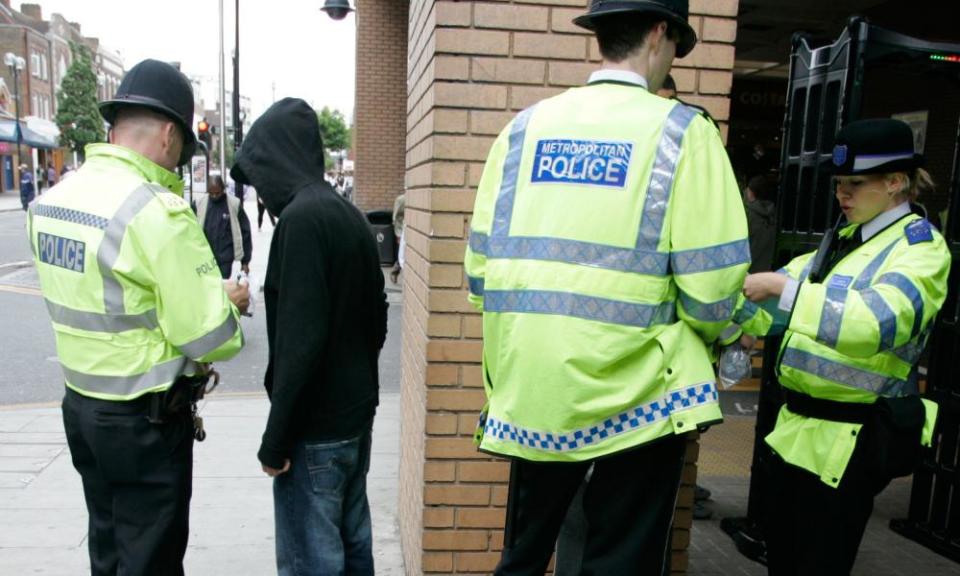Why did police stop and search Bianca Williams and Ricardo Dos Santos?

The stop and search of Ricardo dos Santos and Bianca Williams in west London has once again renewed concerns about the use of stop and search powers.
What happened?
Williams and her partner, Dos Santos,were stopped as they were driving a Mercedes in Maida Vale on Saturday.
Video of the incident, posted by Linford Christie on Twitter, showed officers telling Dos Santos and Williams, who were travelling with their three-month-old son, they were going to be searched. Williams is heard repeatedly saying: “My son is in the car.”
Williams, 26, a European and Commonwealth relay gold medallist, and Dos Santos, 25, a Portuguese 400m record holder, have told reporters they fear they were targeted because they are black.
What did the police say?
The Metropolitan police alleged the vehicle was driving suspiciously, including driving on the wrong side of the road. The force said officers indicated for the vehicle to stop but it failed to do so and made off “at speed”.
The occupants were informed that they were being detained for the purposes of a search under section 1 of the Police and Criminal Evidence Act 1984.
Following a search of the vehicle, the man and the woman, nothing was found. No arrests were made and the occupants were allowed on their way.
Are the police allowed to do that?
Under the cited legislation, the police are able to stop and search a vehicle or a person if they have “reasonable grounds” that the vehicle contains stolen or prohibited articles.
Police officers base the decision on any intelligence and make a judgment on the behaviour of a suspect.
In this case, the force said patrols were taking place in response to an increase in violence involving weapons in the area, and in addition the vehicle was being driven suspiciously.
Are they able to search vehicles without suspicion any offence has taken place?
The police can search people or vehicles without suspicion under a stop and search power known as section 60. A section 60 is a power which allows police officers to stop and search anyone in a specific area without needing to have reasonable grounds.
But this did not apply in the case of Williams and Dos Santos.
Under the Road Traffic Act, police officers can stop vehicles without any grounds but are unable to search the vehicles. They are only able to ask questions of the driver and request licence details.
Why are the police under pressure over stop and search?
Police officers are not permitted to stop a vehicle solely based on certain protected characteristics, including race, age or religious dress of the driver or passengers. This is enshrined in the public sector equality duty under section 149 of the Equality Act 2010.
Stop and search powers are used disproportionately against people from BAME backgrounds, particularly black men.
In England and Wales, black men are 10 times more likely to be stopped and searched than white men. In some force areas, this is higher; police in Dorset are 25 times more likely to search black men than white men.
A number of allegations of unfair treatment of black people by the police have come to light amid increased focus on race inequality in the wake of the death of George Floyd, an unarmed black man who died after a Minneapolis police officer kneeled on his neck for more than eight minutes as he told them: “I can’t breathe.”

 Yahoo News
Yahoo News 